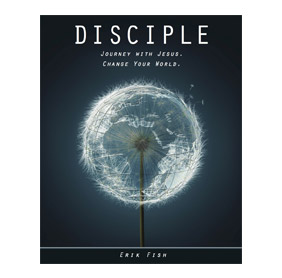The Bible is a very creative and powerful book.
It inspires countless people toward remarkable acts of love, miracles, selflessness, and world changing significance.
Others chop verses from the Bible to justify bizarre beliefs and behaviors.
The Bible was penned by over 40 authors on three continents over two thousand years.
So, how should we rightly understand this book in its varied literary forms, time periods, stories, and personal letters?
Do you ever wonder how people can come up with odd and screwy ways of applying it?
Below are 10 principles I’ve picked up over the years for understanding, enjoying, and rightly applying the Bible in ways that bring tangible benefits to our lives and the world around us.
1) Context matters.
The author’s intent, the audience, the literary form, and the historical/ cultural setting of the time should influence our understanding. When we take scripture out of context, we may unintentionally stand up for a “truth” that’s out of line with the original intent of a part of scripture.
2) Understand obscure parts of the Bible in light of the whole of the Bible.
Ever find something in the Bible, and you’re like, “Say what?!!” When you find something that sticks out as odd, give it time and dig deeper. Understanding the whole of scripture will help you understand the obscure parts. (And, yes, like any normal person, you will probably still have a ton of questions. I’ve learned to run from anyone who thinks they’ve got the answers for everything.)
You can’t “cherry pick” a scripture, say, “The Bible says…” and build a whole new doctrine out of it when it contradicts the obvious major teachings of the rest of the Bible. (When people do this, weird cults are often the result).
If we use the Bible without this understanding, we can become judgmental, arrogant, and harmful in how we apply it.
3) The Holy Spirit teaches us through the Bible.
The Holy Trinity is not “Father, Son, and Holy Scripture.” The written Scripture points us toward God, but it is not God. We worship God, not the Bible. God created us to have a dynamic relationship with Him, not just with a book. If the stories of God’s interactions with people in the Bible tell us one thing more than any other, it’s that God is close, He’s not far away. He reveals Himself to anyone who genuinely seeks for Him.
Jesus told his disciples, “The Holy Spirit will teach you everything and remind you of everything I have told you.” (John 14:26) We can trust the authors of scripture were guided by the Holy Spirit. In the same way, we can trust the Holy Spirit to teach us through the scriptures.
4) The Bible tells the story of God’s redemptive plan for His people and for the planet.
He created people at the very beginning. People screwed up and the world began to change into a much-altered version than God created. God intervenes and calls people back to Himself. He begins raising up a multigenerational movement of people who know, follow, and worship Him.
At different periods of the Bible, God’s people can be seen living nomadic lifestyles, traveling from place to place with no permanent home (land) of their own. They live under the tyranny of slavery for several generations. In later periods, God’s people live as exiles under pagan governments that did not reflect their ideals. In other seasons they live in their own promised land in the kingdom of Israel. Sometimes their kings led with great wisdom, faithfulness, and honor. Sometimes they did horrendous things. The Bible shows the good, bad, and the ugly. When Jesus comes on the scene (He is called “The King of Kings”), He tells his followers to begin spreading the true kingdom of God – life as Jesus modeled it – to every nation on earth. Jesus fundamentally altered the trajectory of the story of the Bible and set God’s people toward a global view of spreading God’s true kingdom to the ends of the earth. Not religion – a lifestyle centered on Jesus being king and guiding how we relate to one another – even loving our enemies.
Knowing the overall story puts the varied parts of the Bible into context.
5) The Bible is best understood in community and interaction.
One of my favorite activities is to sit with diverse groups of people over a meal, read a Bible story, and discuss together how it applies to our lives. I’m continually amazed at how other people’s insights into scripture give me new perspective for applying them in my life.
Religious systems that set up a hierarchy of authority, designating to one or just a few people at the top the final say on everything tend toward dogma and cultish behavior over time.
Further, many of us who have traversed the varied expressions of the Christian faith for very long can attest to the “lone ranger” Bible thumper who has isolated themself from listening and interaction with others and sees themself as “a special prophet” from God while sort of looking down on everybody else. It doesn’t take much to convince anyone that you can read the Bible a lot and still be really creepy.
6) The Bible was written during different covenants God made with His people at certain times.
God is unchanging. But it helps to understand the terms of the covenant in which different scriptures were written. For example, much of the “Old Testament” is written under a covenant incorporating a Levitical priesthood, food and cleansing rituals, etc. Within this Old Covenant, prophets continually prophesied that one day the Messiah would come would remove all sin and incorporate a new covenant. Today, those who are aligned with Jesus live under that New Covenant God made with us through Christ.
7) The clear commands of God in the Bible apply to everyone, everywhere (ie: Love God and love your neighbor, Believe the Good News, etc.) but not every individual scripture immediately applies as a precise rule for all people, everywhere.
There’s a ton of stuff in the Bible that was directed to specific people and situations. We can derive insight and advice from those stories, but we must understand those sections in light of the history in which they were written. For example, “Now, go. Attack the Amalekites…” Imagine trying to obey that scripture if you’re taking it out of context.
8) Building on the last principle, there are three levels of authority that affect how we read and apply the Bible. Here they are in order of highest to lowest:
The Clear Commands of God (“Don’t murder”, Love God and your neighbor as yourself, Love your enemies, Be faithful to your spouse, Worship only God, Believe the Good News, etc.) These apply to all people, everywhere and aren’t contextual or time-bound imperatives.
Apostolic Precedents in the Bible (New Testament). These are actions the apostles took as they sought to expand the way of Jesus throughout the known world in varying cultures – and instructed us to do the same in our day.
Modern Church Traditions – inherited practices from previous generations that may or may not align with the higher levels of authority above. Some church traditions are incredibly meaningful and helpful. But some traditions can become harmful when they are exalted above the first two levels of authority mentioned above.
If we get the levels of authority out of balance, things get wacky quickly.
9) Read the Bible to develop a meaningful relationship with God and others.
The Bible is a gift from God to us. It tells stories of real-life interactions between God and people who lived in specific times, places, and varied socio-economic conditions. Some had a great relationship with God; some not so great. The Bible doesn’t gloss over the stupid and often harmful courses people sometimes chose – even people who believed in God. We can learn from their examples.
One of the things that endears me to the Bible is that it’s not a story about great people; it’s a story about a great God who continually seeks to live in relationship with people.
These stories invite us personally to get to know God and do life with Him.
10) The entire Bible points to Jesus.
If we miss who Jesus is and what he’s like, we will easily misapply the Bible. The way Jesus lived, how he treated people, and the instructions He gave people for how to live on planet earth is the fulcrum on which the entirety of the Bible comes to a cohesive place of resolve. For Jesus followers, everything points to Jesus. How we view government. How we interact with people – even our enemies. The attitudes we have and actions we take. That doesn’t mean we must agree with others’ ways of seeing the world and acting in it, it doesn’t mean we don’t take stands at times for what is just and righteous, and it also doesn’t mean people who follow Jesus won’t ever disagree with each other (duh). But we are called to emulate Jesus as we do.
The Bible is described as the sword of the Spirit (Ephesians 6:17. Of course, not a physical sword, but a spiritual one). Like any weapon, it can be wielded rightly for good or wrongly for harm.

“There is one who speaks rashly, like the thrusts of a sword, but the tongue of the wise brings healing.” (Proverbs 12:18)
Nations have tried to outlaw it. Many have died for its preservation. It remains the best selling book in all of history. More than any other text or philosophy, the Bible is the ultimate literary guide for pointing the way toward what God is like and how He thinks and feels about the world.
But, similar to how my own children don’t know me because they read a book about me, the Bible can inspire us to get to know God personally. As our relationship with God grows, we will increasingly reflect God’s character (Love) in the world.
I love the Bible. Let’s dive into it with understanding. Then we’ll become people who truly know God and speak with wisdom to bring healing to our world (and not act like A-holes).
What other helpful principles for understanding the Bible have you discovered?
Erik
.
Would you enjoy learning how to follow Jesus in everyday life?
“Disciple” has helped thousands of people develop a deeper relationship with God and a practical understanding of the Bible.


thanks, erik! loved point #3 especially: it’s not father, son, and holy scripture. thank you for your insights and for pointing us to Jesus.